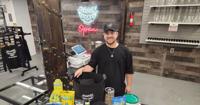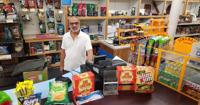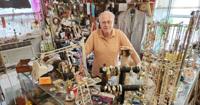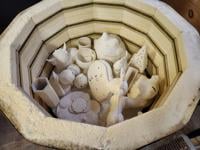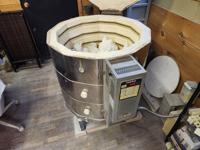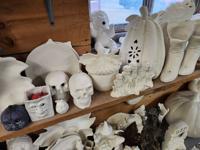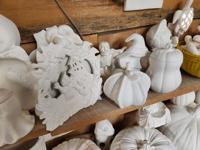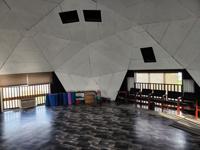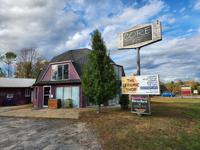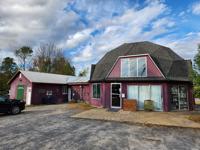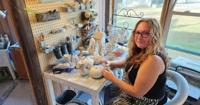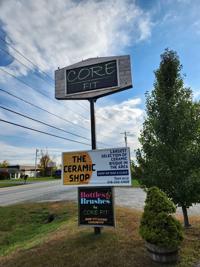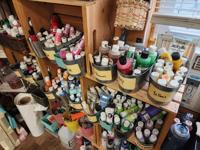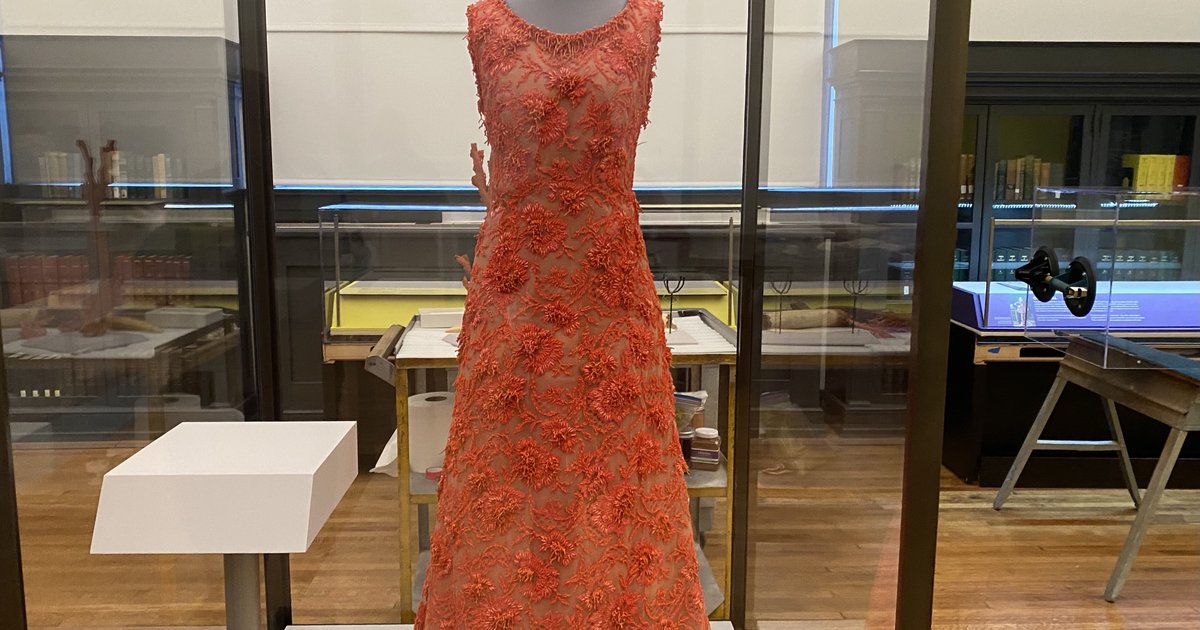Fitness
Mayfield fitness gym venture Core Fit lives on with help from ceramic business

“Ceramics have basically taken over,” said co-owner Jamey Agerter. “I’d say that 95% of this business is ceramics.”
His wife Kristin, who co-owns the business with, nodded.
The couple, both 48, was standing in the rear of its leased building at 2430 State Route 30. This part of the property had been a service shop but now contained rows of tables set up to host as many as 33 students for the three-hour Tuesday evening class.
The session runs from 6 to 9 p.m. but two female participants arrived 30 minutes early on a recent Tuesday evening and were waiting in a corner of the room, near the cubby holes where students keep their in-progress ceramics between classes.
“All this wasn’t by choice,” Kristin Agerter said. “It kind of just happened.”
Along with a friend, Kim Snyder, Kristin Agerter opened Core Fit so locals would have a convenient spot for exercising.
“Every room was a fitness room,” Kristin Agerter recalled.
The main building on the property, a mound of a structure with a roof made of geodesic triangles, had been tall enough to contain the masts on a sailboat. A second floor was added under the dome, and this became the studio in which jiu jitsu was taught. Other parts of the building were devoted to yoga and what was called drum aerobics — where students exercised while bouncing a ball against an overturned tub.
Customers seemed to appreciate Core Fit, Kristin Agerter said, but the business was running at a deficit and the two owners kept it afloat with subsidies. Snyder and her husband owned a liquor store in Gloversville, Kristin Agerter was the deputy town clerk for Mayfield and her husband worked as a letter carrier for the U.S. Postal Service.
A friend suggested using Core Fit to host events for people to come and paint ceramics. The first sessions were held in 2015 and the owners were surprised by the positive response.
“It helped us pay the bills for the fitness,” Kristin Agerter said.
The bisque ceramics side of the business is known as Bottles & Brushes Ceramic Shop by Core Fit.
Snyder, who died last year, sold her share of the business in 2020 but remained close with her former business partner. When Snyder sold out, Jamey Agerter then became the other owner.
Aerobics are taught on weekdays from 9 to 10 in the morning and Monday evenings at a cost of $5 per class. Kristin Agerter teaches many of the sessions and said there are normally between three and 10 students. The aerobics side of the business now uses the former jiu jitsu studio under the dome.
Painting classes are held in the evenings on Tuesdays and Thursdays, and mornings on Wednesdays and Saturdays.
Students pay $8 per class when they use acrylic paints to finish their pieces. The rate is $15 when they use glaze finishes, which cost more and require the piece to be fired again in the kiln.
The pupils also buy the ceramics from Core Fit’s inventory. Some pieces, like a large pumpkin, were recently priced at $40, while small ornaments were available for $3. All of them were fired in the shop’s kiln, and many were poured into molds stored on the ground level of the domed building. Other pieces were purchased from vendors.
The classes are as much social events as they are educational pursuits. Attendees typically talk, laugh and nibble on snacks as they work.
“I will eat some caramel apple chocolate and paint my piece,” said Wanda Antos from Perth, about to work on a ceramic dragonfly.
Jennifer Blowers, from Caroga Lake, was dry brushing the proud face of a Native American chief. She had earlier painted the piece black but was now using a dry brush to add lighter colors.
“I’ll probably spend another four to five hours on this,” Blowers said. “This is my favorite hobby, and this is just a people-friendly place and I love it here.”
Kristin Agerter said the store sells many pieces and paints to customers who finish their ceramics elsewhere.
The Agerters also bring the classroom experience on the road — by packing up ceramic pieces and paints, and then hauling the gear to sites like restaurants. Rarely do their in-store students travel to these events, Jaime Agerter said, so these remote events help the owners reach new customers.
The ceramic molds are heavy and feel like polished white stone. Kristin Agerter heaved one onto a table so a visitor could look at it.
“All these molds are from 1975,” she said. “I got them from a lady. She had them in her barn.”
Photos: Bottles & Brushes Ceramic Shop, Mayfield

The bisque ceramics sold by the Bottles & Brushes Ceramic Shop by Core Fit in Mayfield are fired in this kiln.

The bisque ceramics sold by the Bottles & Brushes Ceramic Shop by Core Fit in Mayfield are fired in this kiln.

Out of the kiln and ready for painting, bisque ceramics are displayed for sale inside Bottles & Brushes Ceramic Shop by Core Fit in Mayfield.

Out of the kiln and ready for painting, bisque ceramics are displayed for sale inside Bottles & Brushes Ceramic Shop by Core Fit in Mayfield.

Aerobics students use this floor to exercise at Core Fit in Mayfield. Ceramics work has become a larger part of the business, which opened in 2013.

The domed building at 2430 State Route 30 in Mayfield has been used since 2013 to host aerobics classes but most of the space inside the property is now used by the Bottles & Brushes Ceramic Shop, which is under the same ownership.

The domed building at 2430 State Route 30 in Mayfield has been used since 2013 to host aerobics classes but most of the space inside the property is now used by the Bottles & Brushes Ceramic Shop, which is under the same ownership.

Jamey and Kristen Agerter, the owners of Bottles & Brushes Ceramic Shop, sit at one of the tables used by students during the Mayfield store’s ceramics classes.

Kristin Agerter, co-owner of Bottles & Brushes Ceramic Shop by Core Fit in Mayfield, cleans bisque ceramic pieces after they were removed from their molds. The greenware is then fired in a kiln.

What was started as a Mayfield fitness gym 11 years ago still offers aerobics classes, but the focus of the business is now on ceramics.

These acrylic paints are used by students during classes at Bottles & Brushes Ceramic Shop by Core Fit in Mayfield. They can also use glazes, but those finishes require the ceramic piece be fired again inside the store’s kiln.
–

